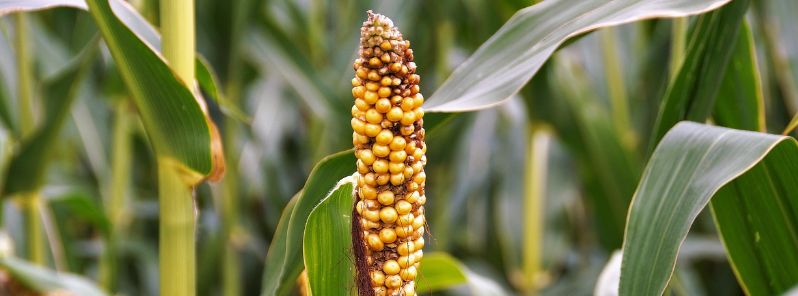2019 harvest a historic one after months of severe crop damage, North Dakota

North Dakota's 2019 harvest is said to be one for the history books due to the severity of the damage to crops from September to October by adverse weather conditions.
What makes the 2019 crop year historic is the breadth of damage, and on top of that, as much as 61 cm (24 inches) of snow fell in an early autumn snowstorm.
"I don’t know of an event that has impacted the state of North Dakota and northwestern Minnesota as much as this has, as far as financial losses, crop losses, stress on farmers," said Brad Brummond, Walsh County Extension agent.
"We’ve left a significant amount of corn and beans in the field. We left some of our potatoes and sugar beets."
The 2019 harvest was a struggle from August on, with wheat farmers putting tracks on their combines and parking grain carts on the side of the road in an effort to get the crop off.
Despite the farmers’ best efforts, 303 514 ha (750 000 acres) of the 2.6 million ha (6.5 million acres) of spring wheat North Dakota farmers planted in 2019 was not harvested, which means that an estimated 36.8 million bushels of the crop didn’t make it into the bin.
The harvest struggle continued with row crops as edible bean, soybean and canola farmers were challenged by wet conditions.
Sugar beet farmers buried beet lifters, potato farmers pulled truck, and ranchers used manure spreaders to haul loads of silage in efforts to get crops out of the field. After a six-week battle, the violent weather won.

A freeze in early November destroyed potatoes and sugar beets. A total of one-third or about 46 538 ha (115 000 acres) of sugar beets that farmers grow for American Crystal Sugar Co. were not harvested.
Red River Valley potato farmers also suffered big losses. Massive amounts of fresh, seed, processing and chipping potatoes were left in the field to rot.


Corn also fell victim to the wet weather and fall snowstorm, with most of the crops planted this spring still in the field as 2019 comes to an end.
"The bottom line is the effect the miserable harvest will have on the finances of the region’s businesses. Agriculture is one of the biggest drivers of the economy, and the reduction in farmers’ incomes likely will be felt in small towns and major city businesses, alike," said the West Central Tribune.
"Even bigger than the economic hit farmers are taking is the emotional hit from the stress of trying to get the crop out then being forced to leave hundreds of acres unharvested. Communities, neighbors, friends, clergy and mental health professionals are empathetic to the farmers’ situation and are reaching out to them."
"While farmers will be glad to leave 2019 behind them, it likely won’t be forgotten for decades to come."
Featured image credit: ivabalk/Pixabay

Commenting rules and guidelines
We value the thoughts and opinions of our readers and welcome healthy discussions on our website. In order to maintain a respectful and positive community, we ask that all commenters follow these rules:
We reserve the right to remove any comments that violate these rules. By commenting on our website, you agree to abide by these guidelines. Thank you for helping to create a positive and welcoming environment for all.